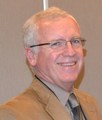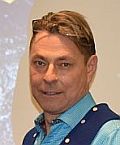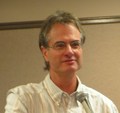FLASHBACK TO 2016: “The purpose of the Primer on Application of Ecosystem-based Understanding in the Georgia Basin is to connect the dots and disseminate information on the ‘science-based understanding’ that underpins the vision for Sustainable Watershed Systems,” stated Peter Law, formerly with the BC Ministry of Environment

“An interface is needed to translate the complex products of science into achievable goals and implementable solution for practical resource management. This interface is what we now call a science-based understanding,” stated Peter Law. “Understanding how land development impacts watershed hydrology and the functions of aquatic ecosystems provides a solid basis for making decisions to guide action where and when it is most needed. This understanding will help multiple audiences ask the right questions so that communities make informed decisions.”










